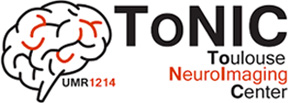Recherche translationnelle en santé,
technologie pour la santé et recherche clinique

Présentation ToNIC 02/12/2020 : Quentin Chenot
The challenges of current research and how to use open science tools to overcome them
Psychological and neuroscience fields have recently entered a crisis of reproducibility, with many results that could not be replicated (Open Science Collaboration, 2015).
The goal of this talk is first to try to better understand the reasons behind this crisis, and to explain biases that researchers may encounter (consciously or not) when conducting research (P-hacking, HARKing, publication bias, and so on; Nuzzo et al., 2015). The second part of this talk will focus on Open Science tools that have been recently proposed to overcome these biases in order to improve research (Button et al., 2013).
Button, K. S., Ioannidis, J. P., Mokrysz, C., Nosek, B. A., Flint, J., Robinson, E. S., & Munafò, M. R. (2013). Power failure: why small sample size undermines the reliability of neuroscience. Nature reviews neuroscience, 14(5), 365-376.
Nuzzo, R. (2015). Fooling ourselves. Nature, 526(7572), 182.
Open Science Collaboration (2015). Psychology. Estimating the reproducibility of psychological science. Science, 349(6251), aac4716.
